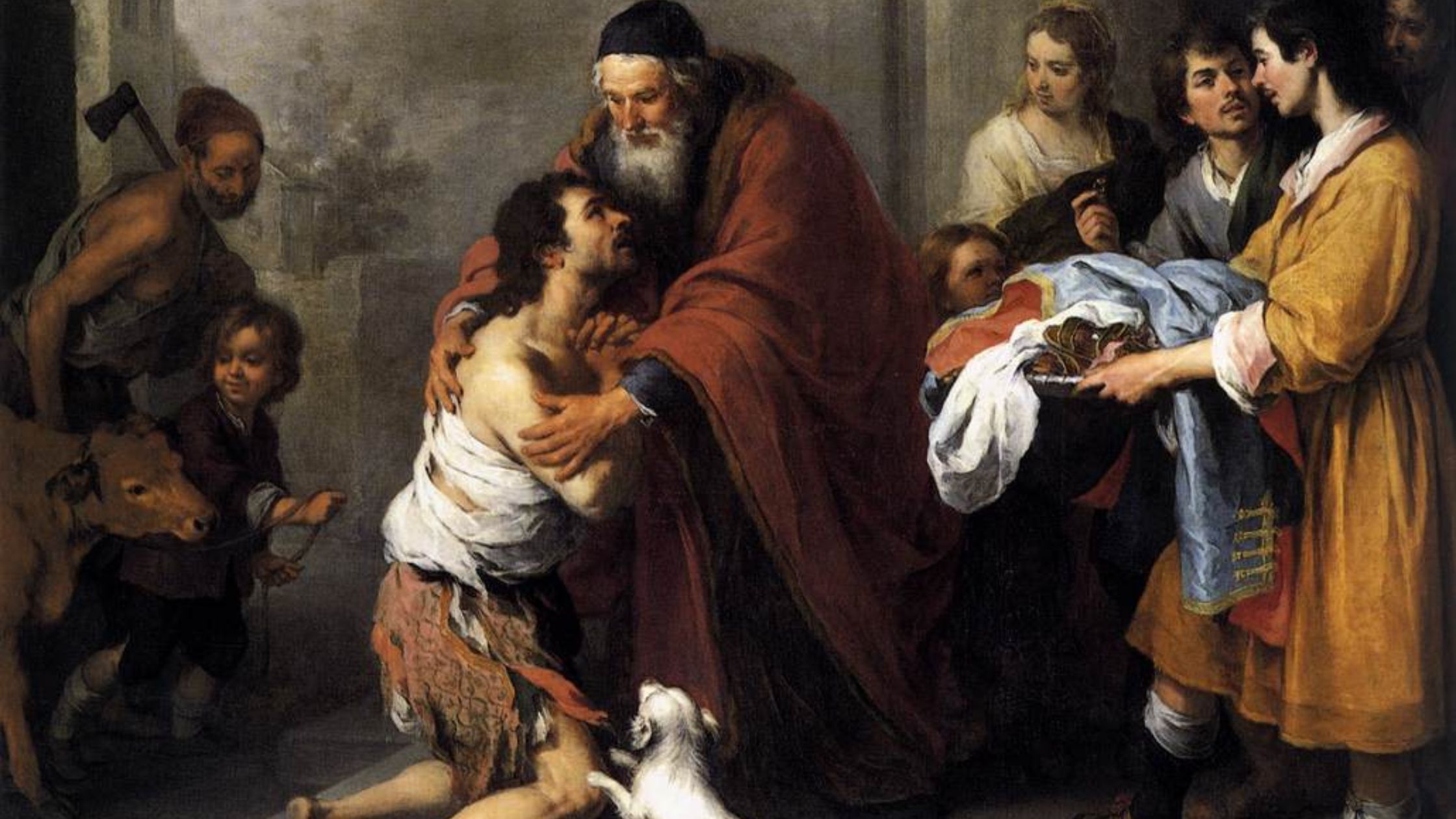To understand and appreciate the Sacrament of Reconciliation we must look firstly to God. As a sacrament, confession is a divine action, and what is most important therefore is the silent but real activity of God the Father, Son and Holy Spirit in this rite. Before addressing our questions about confession it is helpful to consider God’s view of and action in this sacrament. What does God do in this sacrament? What is the Lord’s intention in our regard when we go to confession? Our minds and hearts are best illuminated by considering the mind and heart of Christ in regard to forgiveness and mercy.
The Opening Prayer (or Collect) of the 26th Sunday in Ordinary Time addresses God in the following way: “O God who manifest your almighty power above all by pardoning and showing mercy…” At first glance this phrase might surprise us. We might think that surely God shows he is all-powerful in creation, in bringing all that exists into being out of nothing. Or we might say that God shows his might above all in the Incarnation, by becoming man in Jesus Christ, or, indeed, in the miracles performed by our Lord.
Yet the faith of the Church expressed here in the liturgy professes that God shows his omnipotence above all in having mercy and forgiving. What can this mean? The forgiveness of sins brings about, constitutes, a new creation. The creation of all things from nothing does indeed show God’s almighty power. But the “new creation” or “re-creation” by which we are transformed by grace into being beloved children of God and “partakers of the divine nature” (2 P 1:4) manifests God’s omnipotence even more. St Paul teaches that through baptism we become a “new creation” (2 Co 5:17). From being sinners, we truly become beloved children of God, not just in name, but in reality (cf. 1 Jn 3:1). The purification from sin which God carries out in confession effects our re-creation in Christ, and renews or reaffirms our divine filiation, that is, our identity as children of God in Christ which we received in baptism. Indeed St Gregory Nazianzen referred to penance as “the second baptism, the baptism of tears”. In confession the Lord exercises his almighty power and love. This is the greatness of this sacrament, which transcends what we can fully understand and exceeds our greatest hopes and desires. In fact we can easily underestimate the beauty and power of this sacrament.
A God who continually forgives
St Josemaría Escrivá, a tireless apostle of the confessional, marvelled at the all-powerful love of God: “If God’s power is marvellous in creating all things from nothing, if God is worthy of all love since out of love he redeems us on the cross, a God who continually forgives is more loving than all the mothers and fathers of this world put together”.
The sacrament of forgiveness leads us then to know more deeply who God is. In the Bull Misericordiae Vultus (“The Face of Mercy”) Pope Francis comments on this Collect prayer and cites the words of St Thomas Aquinas: “It is proper to God to exercise mercy, and he manifests his omnipotence particularly in this way”. These words of St Thomas, says the Holy Father, “show that God’s mercy, rather than a sign of weakness, is the mark of his omnipotence… Throughout the history of humanity, God will always be the One who is present, close, provident, holy and merciful”.
“When God forgives he forgets”
The Holy Father explains the mercy of God with particular reference to Sacred Scripture. Here it is God himself who proclaims his infinite patience and love. The Psalms are full of this teaching: “He forgives all your iniquity, he heals all your diseases, he redeems your life from the pit; he crowns you with steadfast love and mercy” (Ps 103:3- 4; cf. Ps 146:7-9; 147:3.6). Psalm 136, cherished by the people of Israel as the “Great Hallel” has as its refrain: “For his mercy endures forever”. Micah ends his prophecy with a sure affirmation of God’s mercy: “He will again have compassion upon us, he will tread our iniquities under foot. You will cast all our sins into the depths of the sea” (7:19).
The hopes of the Old Testament for a Messiah, the saviour who would save his people from their sins, finds fulfilment in Jesus Christ. In his beautiful canticle, the Benedictus, Zechariah celebrates the coming of the Redeemer when he speaks of “the tender mercy of our God” which has dawned on his people from on high (Lk 1:78). Indeed, Christ is mercy incarnate. “With our eyes fixed on Jesus and his merciful gaze, we experience the love of the Most Holy Trinity”.
It is not easy for us to grasp or understand this limitless mercy of God who forgives and forgets, because we find it so hard to do this ourselves. Divine justice is very different to human justice.
Often we need images or metaphors to convey something of the reality of God’s readiness to forgive the contrite sinner. Blessed Columba Marmion wrote that “we are infinitely rich in Jesus Christ and, compared with our miseries, the mercy of God is like an ocean compared to a drop of water”.
God the Father of Mercies
The forgiveness of sins in confession is an action of the Blessed Trinity: Father, Son and Holy Spirit. While all God’s actions outside of himself (ad extra actions) are one common action of the three divine persons, as the Catechism of the Catholic Church points out, “each divine person performs the common work according to his unique personal property” (n. 258).
The immense mercy of God the Father is best explained to us by Jesus himself in the beautiful parable of the prodigal son. The younger of two sons, who has gone and squandered his share of his father’s hard-earned life’s savings “in loose living” (Lk 15:13), only comes to his senses when famine reduces him to extreme poverty. He decides to return to his father’s house to overcome his hunger: “How many of my father’s hired servants have bread enough and to spare, but I perish here with hunger!” (Lk 15:17)
While there may not be clear signs of remorse on the part of the wayward son, there is no doubt at all as to the attitude of his father. It is worth reflecting on each of the five verbs contained in the description of the welcome the son receives from his father: “While he was yet at a distance, his father saw him and had compassion, and ran and embraced him and kissed him” (Lk 15:20). Christ leaves us in no doubt as to the attitude of God the Father to us sinners. The Father was eagerly awaiting his son and he spots him from a distance. He does not charge his son with the real injustice he has done to him. He takes the opening the son has given him to forgive and reinstate his son with great tenderness and joy.
 This blog is extracted from our book The Beauty of Confession with Pope Francis. Pope Francis speaks of repentance, sin and confession from personal experience. Why do we need Confession? Are we truly forgiven? How to overcome feelings of unworthiness? How often should one go to Confession? These questions and many others are explored and answered.
This blog is extracted from our book The Beauty of Confession with Pope Francis. Pope Francis speaks of repentance, sin and confession from personal experience. Why do we need Confession? Are we truly forgiven? How to overcome feelings of unworthiness? How often should one go to Confession? These questions and many others are explored and answered.
For more inspiration from Pope Francis on Confession, order your copy of The Beauty of Confession with Pope Francis today.
